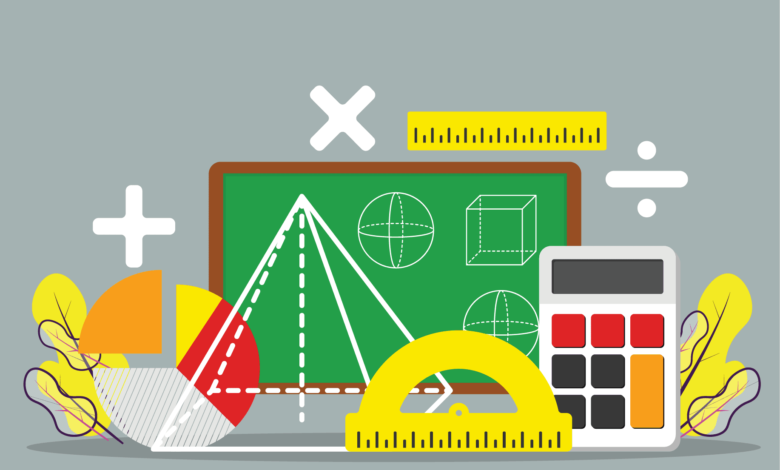
10 Tips for Exploring the Branches of Mathematics In 2023? Mathematics is a vast and fascinating field that underlies many aspects of our modern world. Whether you’re a student, a professional, or simply someone with a curiosity for numbers, exploring the branches of mathematics can be a rewarding and enriching experience.
Start with the Basics
If you’re new to mathematics or want to strengthen your foundation, it’s crucial to start with the basics. Familiarize yourself with arithmetic, number systems, and basic operations. Build a solid understanding of mathematical notation, concepts, and terminology. This strong groundwork will provide you with a solid platform to explore more advanced branches of mathematics.
Discover Algebra and its Applications
Algebra is a fundamental branch of mathematics that deals with equations, variables, and abstract structures. Dive into algebraic concepts like linear equations, quadratic equations, polynomials, and matrices. Explore how algebra finds applications in various fields, such as physics, computer science, and economics.
Unleash the Power of Geometry
Geometry is the study of shapes, sizes, and properties of objects. Delve into Euclidean geometry, trigonometry, and analytical geometry. Discover the elegance of geometric proofs and the application of geometric principles in fields like architecture, engineering, and art.
Delve into Calculus and Analysis
Calculus and analysis are essential tools for understanding change and motion. Learn about differentiation, integration, limits, and series. Explore how calculus revolutionized physics and engineering, enabling us to describe the behavior of objects and phenomena in a precise and rigorous manner.
Explore Probability and Statistics

Probability and statistics play a crucial role in decision-making, data analysis, and modeling uncertainty. Familiarize yourself with probability theory, statistical distributions, hypothesis testing, and regression analysis. Discover how these concepts are applied in fields like finance, biology, and social sciences.
Read More: 10 Tips for Mastering Ornithology In 2023
Learn about Number Theory
Number theory focuses on the properties and relationships of numbers. Engage with prime numbers, divisibility, modular arithmetic, and famous number sequences like Fibonacci and Lucas numbers. Number theory has practical applications in cryptography, computer science, and encryption algorithms.
Embrace Mathematical Logic
Mathematical logic explores the principles of valid reasoning and proof techniques. Dive into propositional logic, predicate logic, and set theory. Understand how logical reasoning forms the foundation of mathematics and its applications in computer science and artificial intelligence.
Study Discrete Mathematics
Discrete mathematics deals with countable structures and finite objects. Explore combinatorics, graph theory, and algorithms. Gain insights into problem-solving strategies, network analysis, and optimization. Discrete mathematics is the backbone of computer science and plays a vital role in cryptography and network security.
Find Inspiration in Applied Mathematics

Applied mathematics bridges the gap between theory and real-world applications. Discover mathematical modeling, differential equations, and optimization techniques. Explore how mathematics is applied in diverse fields like physics, engineering, economics, and computer simulations.
Engage with Modern Mathematical Research
Stay updated with the latest developments and breakthroughs in the world of mathematics. Follow scientific journals, attend conferences, and engage in mathematical communities. Explore open problems and ongoing research to experience the thrill of pushing the boundaries of human knowledge.
Conclusion
Mathematics is a captivating and ever-evolving field that offers endless opportunities for exploration. By following these 10 tips, you can embark on a journey to understand the beauty and power of mathematics in 2023 and beyond. Whether you’re a student, a professional, or an enthusiast, immersing yourself in the various branches of mathematics will enhance your problem-solving skills and broaden your intellectual horizons.
FAQs
Q: How can I overcome my fear of math?
A: Start with small steps, seek help from tutors or online resources, and practice regularly. Remember that everyone can learn math with dedication and perseverance.
Q: Which branch of mathematics is best for computer science?
A: Discrete mathematics, including graph theory and algorithms, is highly relevant to computer science and lays the foundation for programming and problem-solving.
Q: What are the real-life applications of calculus?
A: Calculus finds applications in physics (e.g., describing motion), economics (e.g., modeling growth and optimization), and engineering (e.g., designing bridges and control systems).
Q: How can I develop my mathematical intuition?
A: Engage in problem-solving exercises, participate in mathematical discussions, and explore visual representations of mathematical concepts to develop your intuition over time.
Q: What are some career options for mathematics graduates?
A: Mathematics graduates can pursue careers in academia, research, finance, data science, cryptography, computer programming, engineering, and more.












One Comment